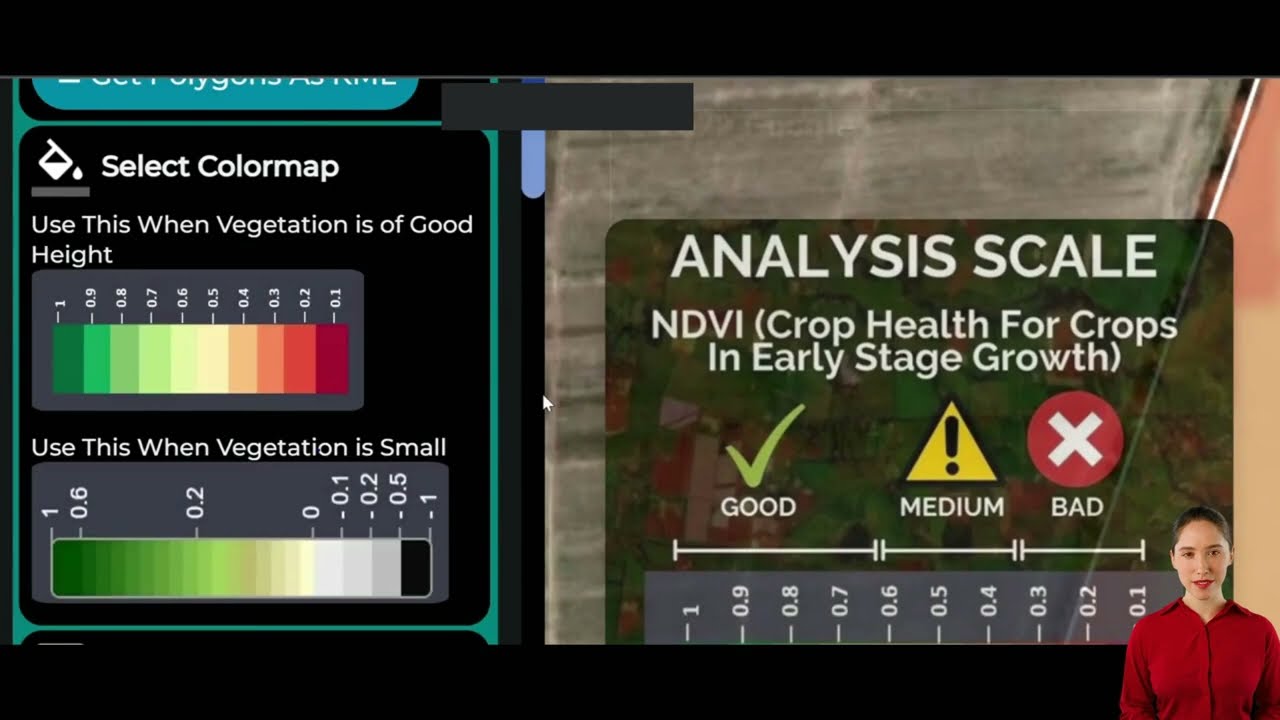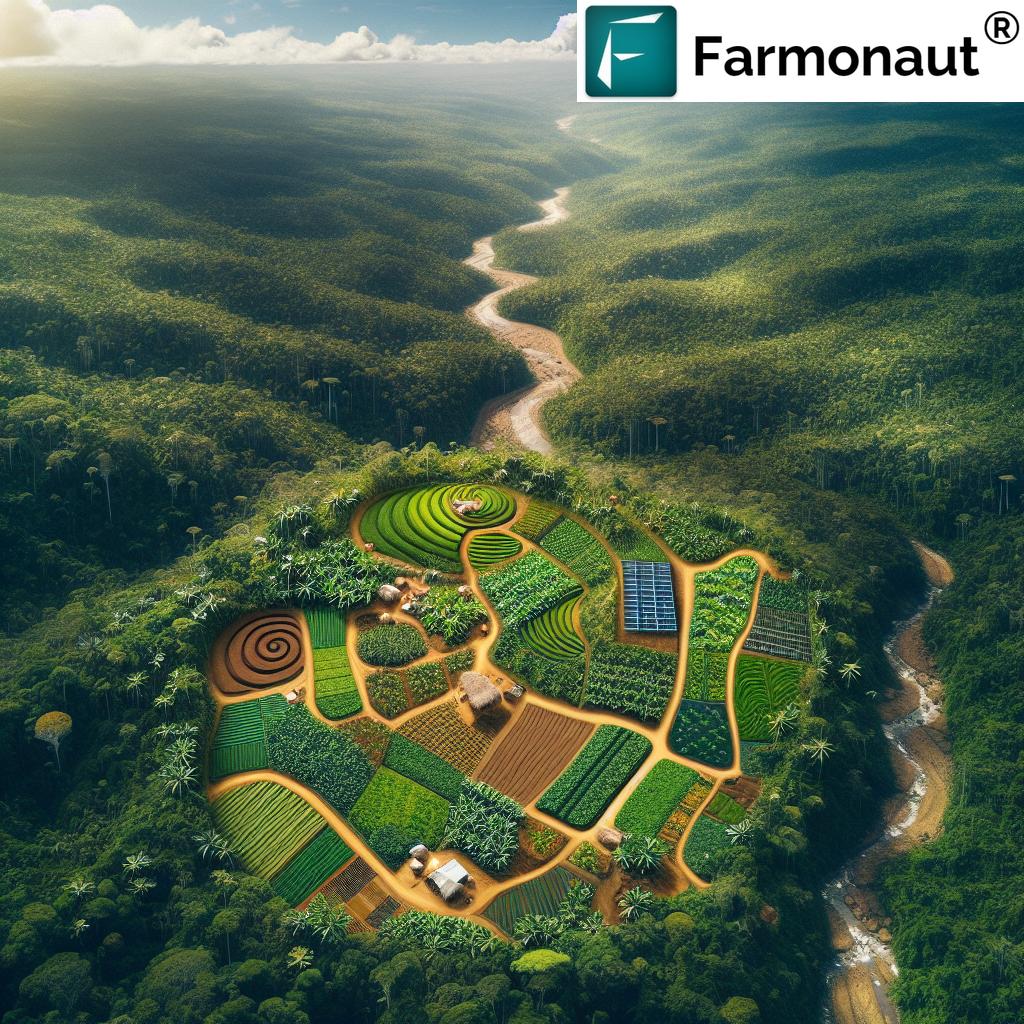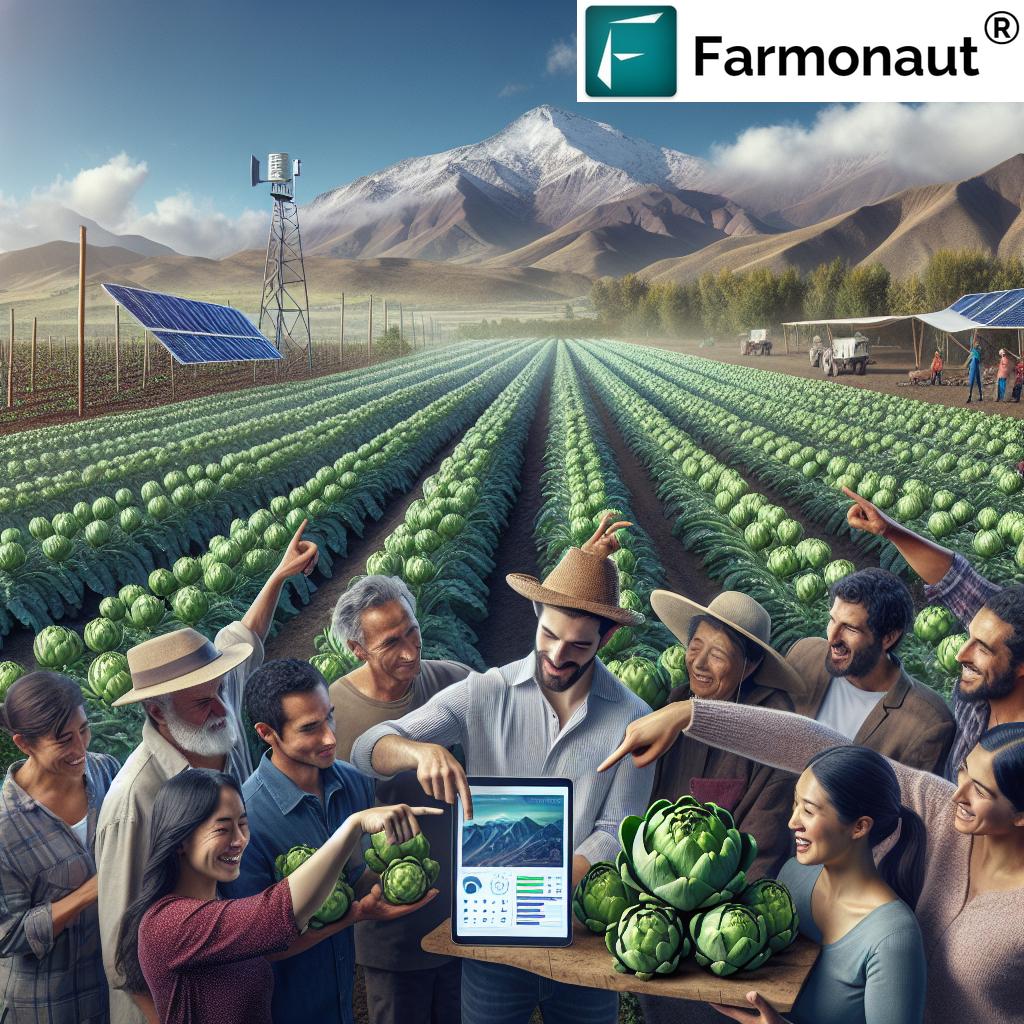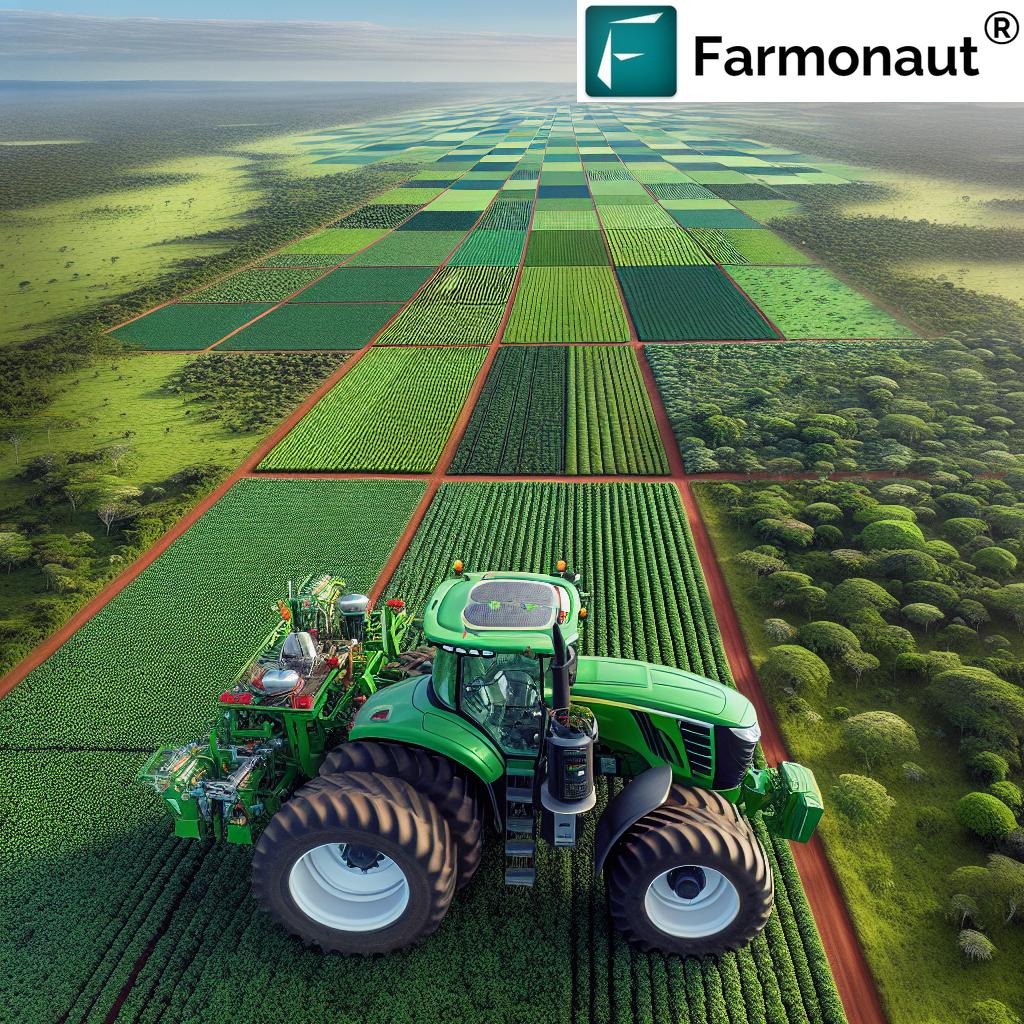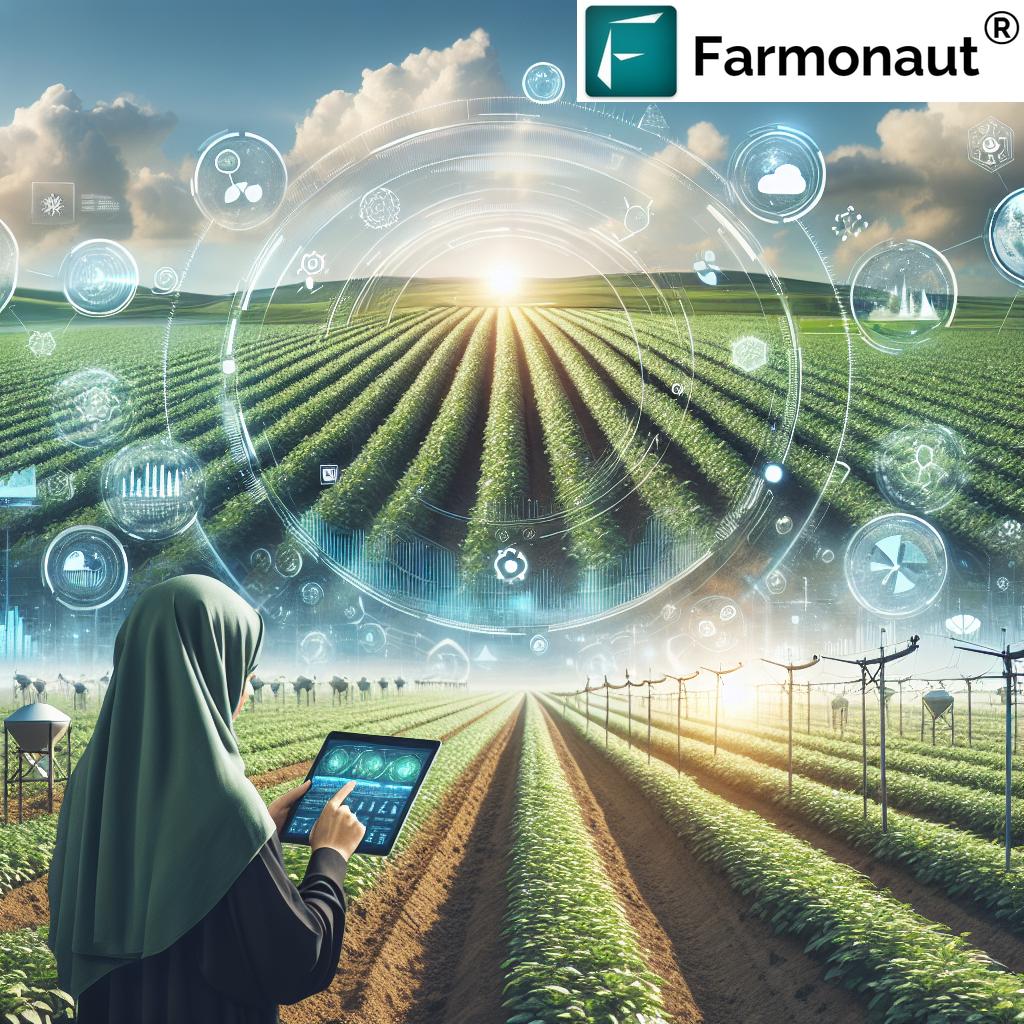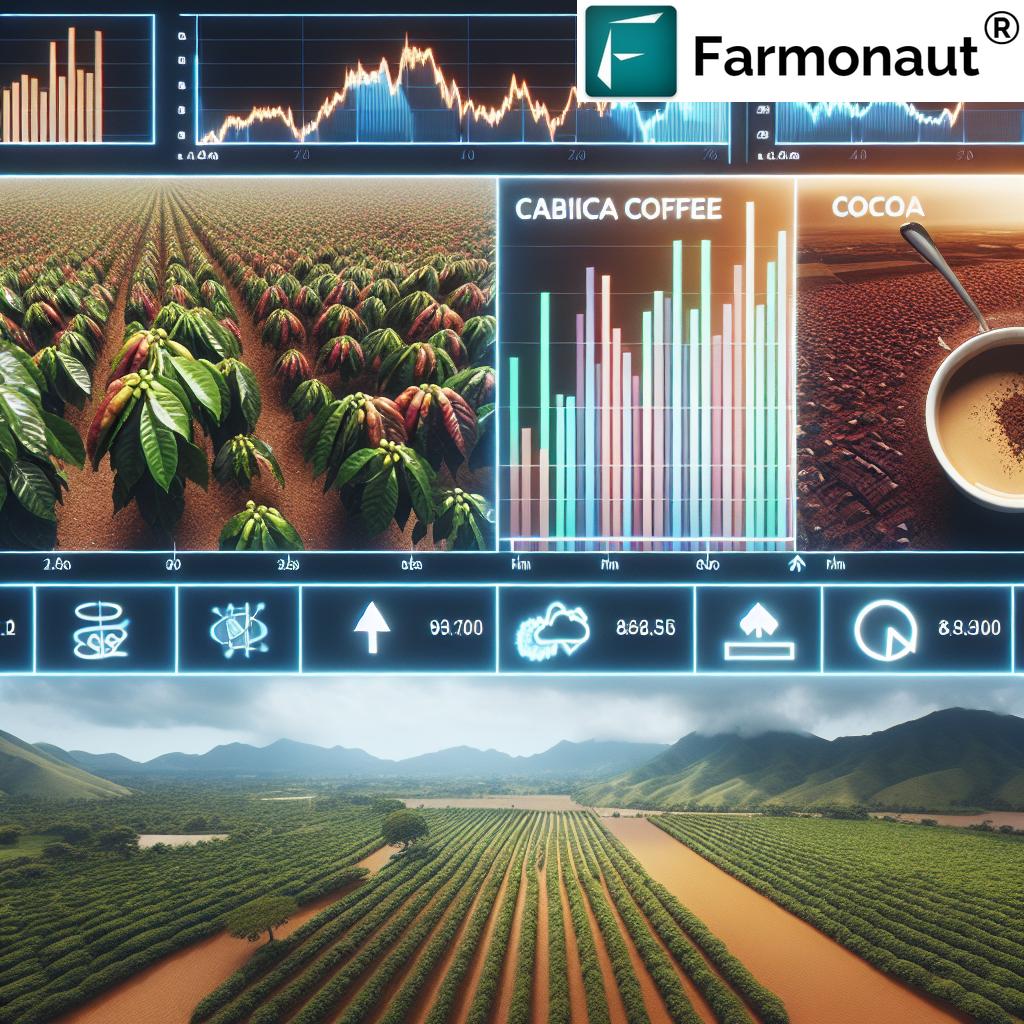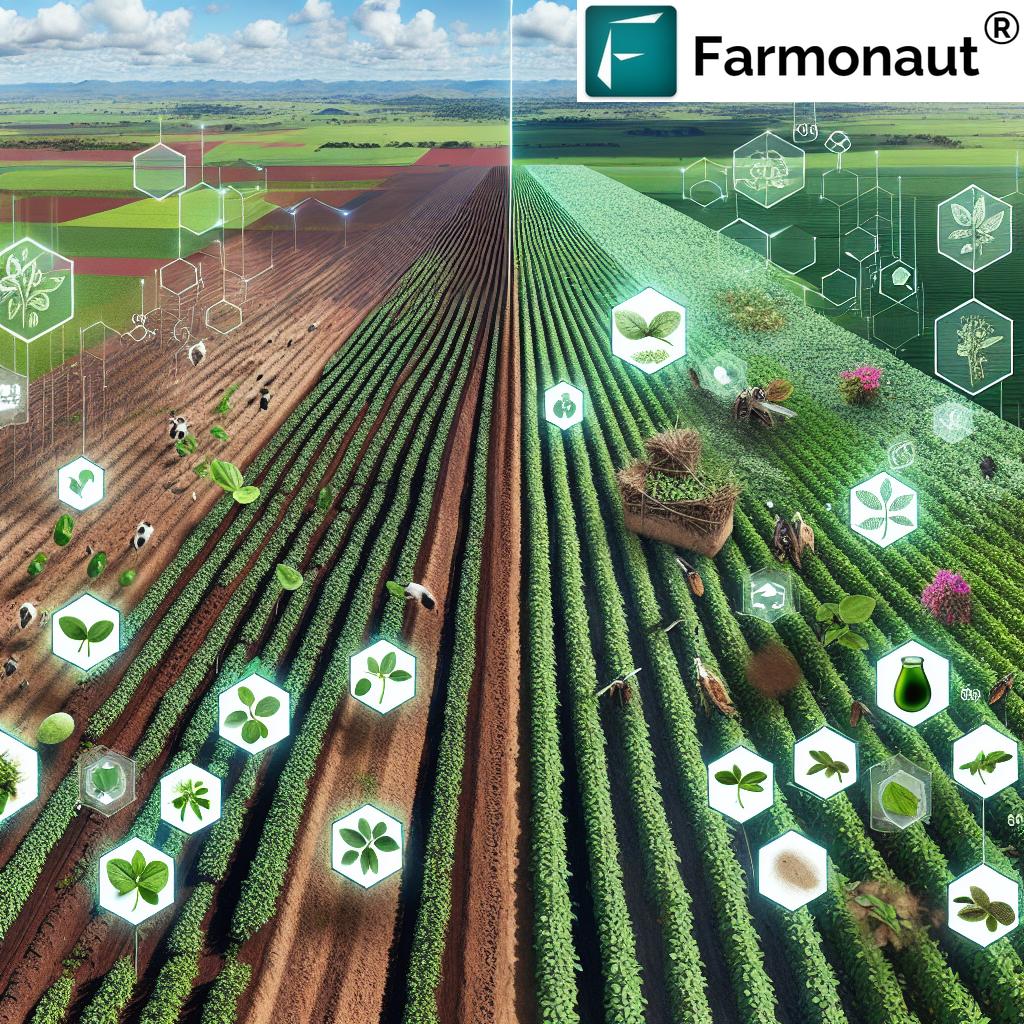Brazilian Fruit Exports Surge: Climate Resilience Boosts 2024 Global Market Despite Production Challenges
“Brazilian fruit exports surged 8.51% to over $1 billion in just 9 months of 2024, despite production challenges.”
In the ever-evolving landscape of global agriculture, Brazil’s fruit export sector has demonstrated remarkable resilience in the face of climatic adversity. As we delve into the latest trends shaping the international fruit market, we’ll explore how Brazilian growers have adapted to weather-induced challenges, leveraging innovative strategies to maintain their competitive edge in the global fresh produce trade.
The Remarkable Rise of Brazilian Fruit Exports
The first three quarters of 2024 have painted a picture of impressive growth for Brazilian fruit exports. Despite grappling with production hurdles, primarily stemming from excessive rainfall, the sector has managed to increase its export value by a substantial 8.51%, surpassing the US$ 1 billion mark between January and September. This growth underscores the sector’s adaptability and the increasing global demand for tropical fruits.
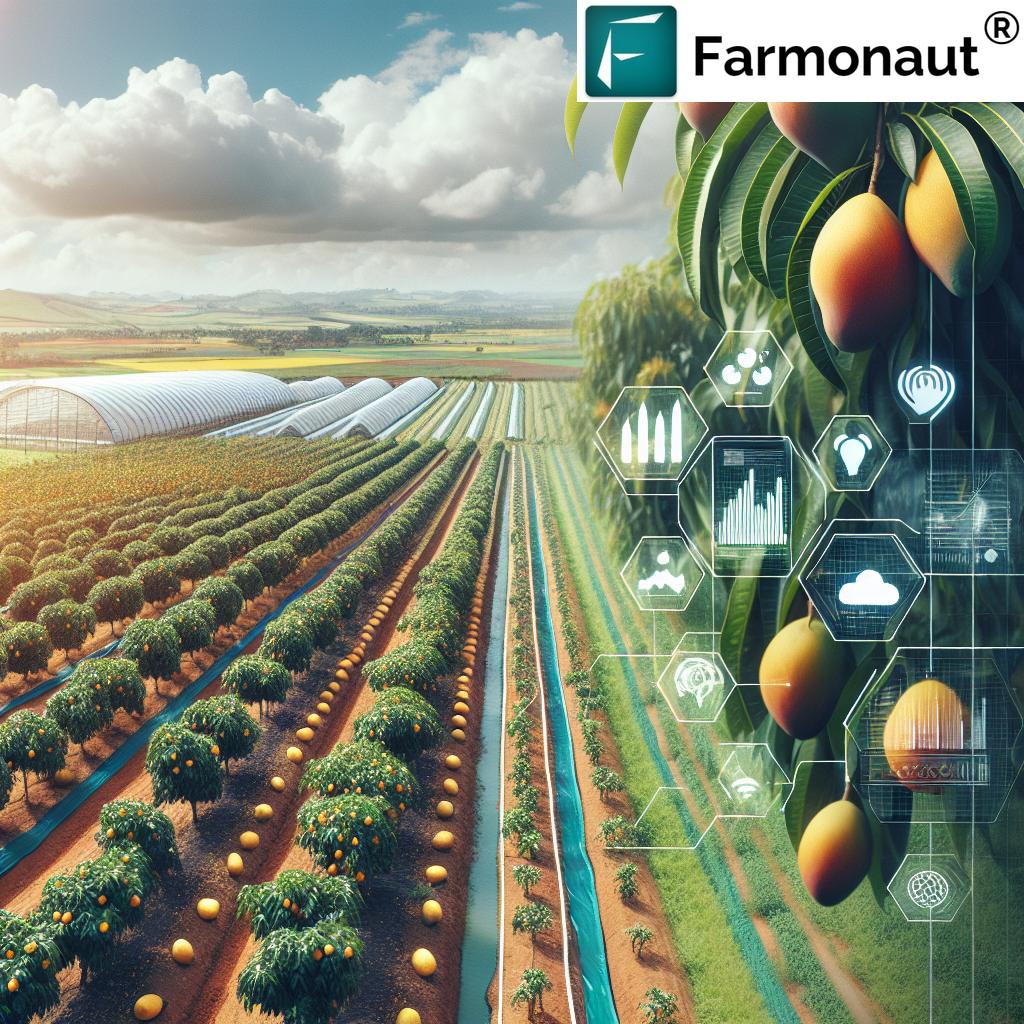
While the overall export volume experienced a decline due to weather-related challenges, specific fruits have shown remarkable performance in international markets. Let’s take a closer look at the standout performers and the factors driving their success.
Mango Exports: A Sweet Success Story
“Mango exports from Brazil skyrocketed by 46.19% in value, outpacing other fruits in the global market.”
Among the various fruits exported, mangoes have emerged as the shining star of Brazil’s fruit export portfolio. The staggering 46.19% increase in export value for mangoes is a testament to the fruit’s growing popularity in international markets and the Brazilian growers’ ability to meet this demand despite challenging conditions.
Factors Contributing to Mango Export Success:
- Increased demand in key markets such as North America and Europe
- Improved varieties with longer shelf life and better flavor profiles
- Efficient logistics and transportation methods ensuring fruit quality
- Strategic marketing initiatives highlighting the health benefits of mangoes
The success of mango exports underscores the importance of adapting to market demands and implementing effective agricultural resilience strategies. Growers have had to navigate complex weather patterns, adjusting their cultivation practices to ensure a steady supply of high-quality mangoes to meet international standards.
Citrus Fruits: Zesting Up the Export Scene
Lemons and limes have also contributed significantly to the positive export trend, with a notable 14.52% increase in value. This growth in citrus exports reflects a broader trend of increasing demand for vitamin C-rich fruits, particularly in the wake of global health consciousness.
Key Drivers of Citrus Export Growth:
- Rising consumer awareness of the health benefits of citrus fruits
- Expanding use in culinary applications and beverages
- Improved packaging and preservation techniques extending shelf life
- Diversification of export destinations, including emerging markets in Asia
The resilience of the citrus sector in the face of climatic challenges demonstrates the effectiveness of adaptive farming techniques and the sector’s responsiveness to global market trends.
Melons: A Cool Success in a Warming Climate
Melons have also shown significant growth in the export market, benefiting from increased demand in North America and Europe. The success of melon exports highlights the Brazilian fruit industry’s ability to capitalize on seasonal demand and maintain product quality across long-distance supply chains.
Strategies Boosting Melon Exports:
- Implementation of advanced irrigation systems to mitigate rainfall variability
- Development of disease-resistant varieties suited to changing climatic conditions
- Adoption of precision agriculture techniques for optimal resource management
- Investment in cold chain logistics to preserve fruit freshness during transport
The success of melon exports underscores the importance of technological innovation in agriculture, particularly in the face of climate-related challenges.
Grapes: Facing the Squeeze of Climate Change
While many fruits have seen growth, grape exports have faced significant challenges, experiencing a sharp decline. This downturn highlights the vulnerability of certain crops to extreme weather events and underscores the need for adaptive strategies in grape cultivation.
Challenges Facing Grape Exports:
- Excessive rainfall impacting fruit quality and harvest timing
- Increased pest and disease pressure due to humid conditions
- Competition from other grape-producing regions with more stable climates
- Shifting consumer preferences in key export markets
The struggles faced by grape exporters emphasize the importance of diversification and the need for climate-resilient farming practices. It also highlights the potential for agritech solutions to support fruit growers in navigating future uncertainties.
Climate Impact on Agriculture: Navigating the New Normal
The varied performance across different fruit types underscores the complex relationship between climate and agriculture. Excessive rainfall, while beneficial for some crops, has posed significant challenges for others, impacting overall production volumes.
Key Climate-Related Challenges:
- Unpredictable rainfall patterns affecting crop cycles and harvest timing
- Increased frequency of extreme weather events damaging crops and infrastructure
- Shifts in pest and disease patterns requiring new management strategies
- Changes in soil conditions impacting nutrient availability and root health
To address these challenges, Brazilian fruit growers are increasingly turning to innovative solutions. Farmonaut, a leading agricultural technology company, offers advanced satellite-based farm management solutions that can help growers navigate these climate-related uncertainties. Through its web app and mobile applications available on Android and iOS, Farmonaut provides real-time crop health monitoring and AI-based advisory systems.



Agricultural Resilience Strategies: Adapting to Change
In response to the challenges posed by climate change, Brazilian fruit growers have implemented a range of resilience strategies to maintain productivity and quality. These strategies not only address immediate climate-related issues but also position the industry for long-term sustainability.
Key Resilience Strategies:
- Diversification of crop varieties to spread risk
- Implementation of advanced irrigation and drainage systems
- Adoption of protected cultivation techniques, such as greenhouses
- Investment in weather monitoring and early warning systems
- Development of climate-smart agricultural practices
These strategies, combined with the use of cutting-edge technology like Farmonaut’s satellite-based solutions, are helping growers make informed decisions about planting, irrigation, and harvest timing. By leveraging real-time data and AI-driven insights, farmers can optimize their operations and mitigate the impacts of adverse weather conditions.
Global Fresh Produce Trade: Adapting to New Realities
The success of Brazilian fruit exports in 2024, despite production challenges, reflects broader trends in the global fresh produce trade. International markets are increasingly valuing quality, sustainability, and reliability of supply over sheer volume, a shift that has benefited Brazilian exporters who have invested in these areas.
Emerging Trends in Global Fruit Trade:
- Growing demand for exotic and tropical fruits in developed markets
- Increased focus on traceability and food safety
- Rising popularity of organic and sustainably produced fruits
- Expansion of e-commerce and direct-to-consumer fruit sales
- Development of new packaging solutions for extended shelf life
These trends present both opportunities and challenges for Brazilian fruit exporters. To capitalize on these opportunities, growers and exporters are leveraging technology to enhance traceability, improve quality control, and optimize supply chain management.
Weather Effects on Crop Yields: A Double-Edged Sword
The impact of weather on crop yields has been a defining factor in the Brazilian fruit export story of 2024. While excessive rainfall has posed challenges for some crops, it has benefited others, highlighting the complex relationship between weather patterns and agricultural productivity.
Weather-Related Impacts on Various Fruits:
- Mangoes: Increased rainfall led to larger fruit size but required careful management to prevent disease
- Citrus: Adequate moisture improved fruit quality but increased the risk of fungal diseases
- Melons: Rainfall patterns affected planting schedules and required adjustments in irrigation practices
- Grapes: Excessive moisture during key growth stages negatively impacted fruit quality and yield
Understanding and predicting these weather effects is crucial for effective crop management. Farmonaut’s weather data services, accessible through their API, provide valuable insights that help growers anticipate and prepare for weather-related challenges.
Tropical Fruit Demand: A Growing Appetite
The significant increase in mango exports and the strong performance of other tropical fruits highlight a growing global appetite for these products. This trend is driven by several factors, including changing consumer preferences, increased health consciousness, and the expanding ethnic food market in many countries.
Factors Driving Tropical Fruit Demand:
- Growing awareness of the nutritional benefits of tropical fruits
- Increasing disposable income in emerging markets
- Expansion of tropical fruit-based products in the food and beverage industry
- Rising popularity of exotic flavors in developed markets
- Improved logistics enabling wider distribution of perishable tropical fruits
Brazilian exporters are well-positioned to meet this growing demand, leveraging their diverse range of tropical fruits and investing in quality improvement and sustainable production practices.
Agritech Solutions for Fruit Growers: Embracing Innovation
The challenges faced by the Brazilian fruit export sector in 2024 have underscored the importance of agritech solutions in modern agriculture. These technologies are playing a crucial role in helping growers navigate climate uncertainties, optimize resource use, and improve overall productivity.
Key Agritech Solutions for Fruit Growers:
- Satellite-based crop monitoring systems for real-time health assessment
- AI-driven advisory systems for personalized crop management
- Precision irrigation technologies for water conservation
- Automated weather stations for localized climate data
- Blockchain-based traceability solutions for supply chain transparency
Farmonaut’s comprehensive suite of agritech solutions, including their satellite-based crop monitoring and AI advisory systems, are at the forefront of this technological revolution in agriculture. By providing actionable insights and data-driven recommendations, these tools are empowering fruit growers to make informed decisions and adapt to changing conditions effectively.
Brazilian Fruit Export Performance 2024 (January-September)
| Fruit Type | Export Value (US$ millions) | Value Change (%) | Export Volume (tons) | Volume Change (%) |
|---|---|---|---|---|
| Mangoes | 205 | +46.19% | 180,000 | +15% |
| Lemons/Limes | 95 | +14.52% | 85,000 | +5% |
| Melons | 150 | +10% | 250,000 | +2% |
| Grapes | 120 | -25% | 60,000 | -30% |
| Total Exports | 1,000+ | +8.51% | 900,000 | -5% |
The Future of Brazilian Fruit Exports: Challenges and Opportunities
As we look to the future of Brazilian fruit exports, it’s clear that both challenges and opportunities lie ahead. The sector’s performance in 2024 has demonstrated its resilience and adaptability, but continued success will depend on addressing several key areas.
Future Challenges:
- Adapting to increasingly unpredictable weather patterns
- Meeting stringent international food safety and quality standards
- Managing water resources sustainably in the face of climate change
- Balancing productivity with environmental conservation
- Navigating complex global trade dynamics and market access issues
Opportunities for Growth:
- Expanding into new markets, particularly in Asia and the Middle East
- Developing value-added fruit products to diversify export offerings
- Leveraging Brazil’s biodiversity to introduce new fruit varieties to global markets
- Implementing advanced technologies to improve productivity and sustainability
- Strengthening Brazil’s position as a leader in sustainable fruit production
To capitalize on these opportunities and address the challenges, continued investment in research, technology, and infrastructure will be crucial. The integration of advanced agritech solutions, such as those offered by Farmonaut, will play a pivotal role in shaping the future of Brazilian fruit exports.
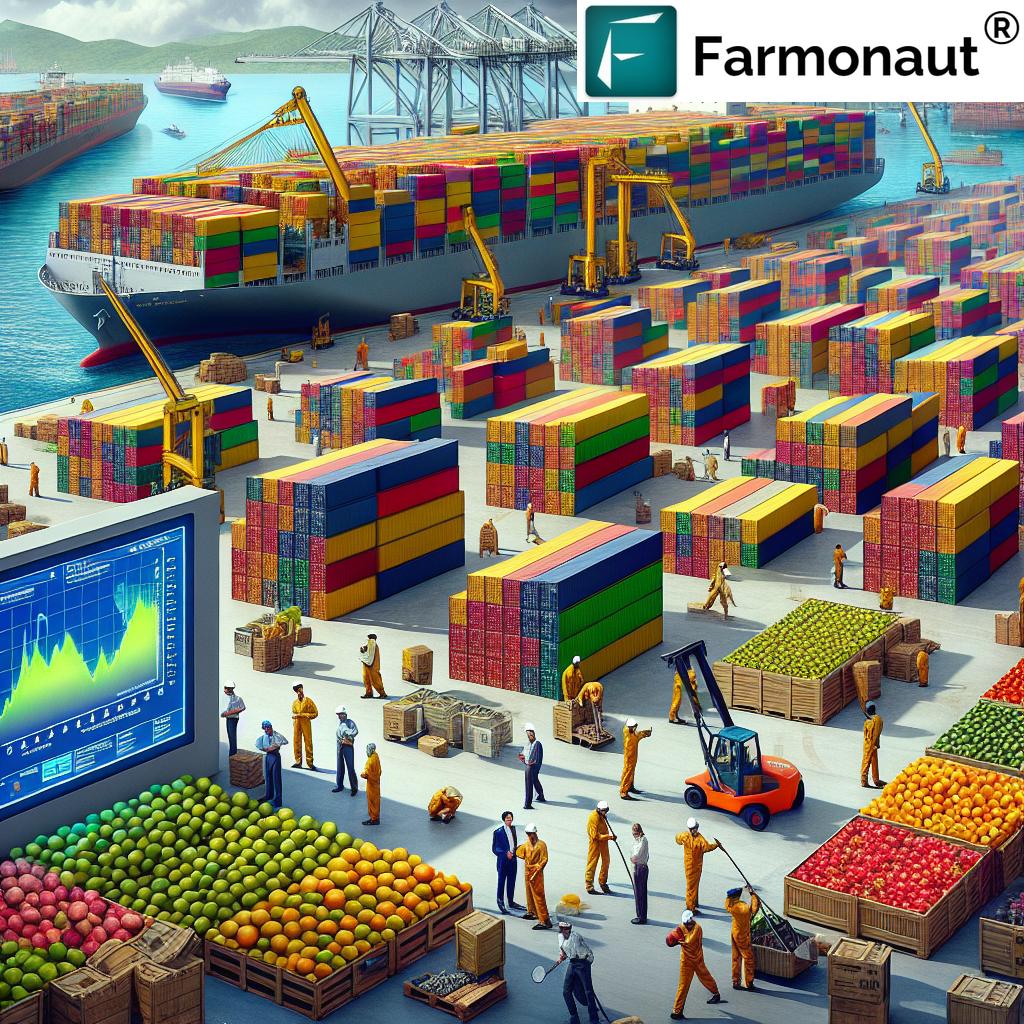
Conclusion: Resilience and Innovation Drive Brazilian Fruit Export Success
The Brazilian fruit export sector’s performance in 2024 tells a story of resilience, adaptability, and innovation in the face of significant climatic challenges. Despite facing production hurdles due to excessive rainfall, the industry has managed to increase its export value, demonstrating its ability to meet global demand for high-quality tropical fruits.
The success of mangoes, citrus fruits, and melons in the international market highlights the sector’s strengths and its capacity to capitalize on changing consumer preferences. At the same time, the challenges faced by grape exports serve as a reminder of the ongoing need for adaptive strategies and technological solutions in agriculture.
As the industry looks to the future, the integration of advanced agritech solutions, such as those provided by Farmonaut, will be crucial in navigating the complexities of climate change, market demands, and sustainable production. By embracing innovation, maintaining a focus on quality, and continuing to adapt to changing conditions, the Brazilian fruit export sector is well-positioned to thrive in the global marketplace for years to come.
The resilience demonstrated by Brazilian fruit exporters in 2024 not only underscores the sector’s importance to the national economy but also highlights Brazil’s significant role in the global fresh produce trade. As we move forward, the lessons learned and strategies developed during this challenging period will undoubtedly contribute to the long-term sustainability and success of Brazil’s fruit export industry.
FAQ Section
1. What factors contributed to the growth of Brazilian fruit exports in 2024?
The growth was primarily driven by increased demand for tropical fruits in international markets, improved agricultural practices, and the sector’s ability to adapt to climate challenges. Notably, mangoes, citrus fruits, and melons performed exceptionally well.
2. How did climate conditions affect Brazilian fruit production in 2024?
Excessive rainfall posed significant challenges, impacting overall production volumes. While some fruits like mangoes benefited from increased moisture, others like grapes faced difficulties, highlighting the varied effects of climate on different crops.
3. What strategies are Brazilian fruit growers using to combat climate-related challenges?
Growers are implementing various resilience strategies, including crop diversification, advanced irrigation systems, protected cultivation techniques, and the adoption of agritech solutions like satellite-based crop monitoring and AI-driven advisory systems.
4. How is technology helping Brazilian fruit exporters?
Technology, particularly agritech solutions like those offered by Farmonaut, is helping growers with real-time crop health monitoring, weather prediction, resource management, and decision-making processes, leading to improved productivity and quality.
5. What are the main export destinations for Brazilian fruits?
While specific data wasn’t provided, Brazilian fruits are typically exported to North America, Europe, and increasingly to Asian markets. The growing demand for tropical fruits in these regions has been a key driver of export growth.
6. How has the Brazilian fruit export sector demonstrated resilience?
Despite production challenges due to adverse weather conditions, the sector managed to increase its export value by 8.51%, showcasing its ability to adapt to changing conditions and meet international market demands.
7. What are the future prospects for Brazilian fruit exports?
The future looks promising, with opportunities for expansion into new markets, development of value-added products, and continued technological integration. However, challenges such as climate change and meeting international standards will need to be addressed.
8. How important is sustainability in Brazilian fruit exports?
Sustainability is becoming increasingly important, both in terms of environmental conservation and meeting consumer demands. Many growers are adopting sustainable practices and leveraging technology to optimize resource use and reduce environmental impact.
9. What role do agritech solutions play in the Brazilian fruit export sector?
Agritech solutions, such as those provided by Farmonaut, play a crucial role in helping growers navigate climate uncertainties, optimize resource use, improve crop health monitoring, and enhance overall productivity and quality.
10. How can small-scale fruit growers in Brazil benefit from the export market?
Small-scale growers can benefit by adopting new technologies, participating in cooperatives, focusing on niche or high-value fruits, and leveraging government support programs aimed at promoting exports and sustainable agriculture.



